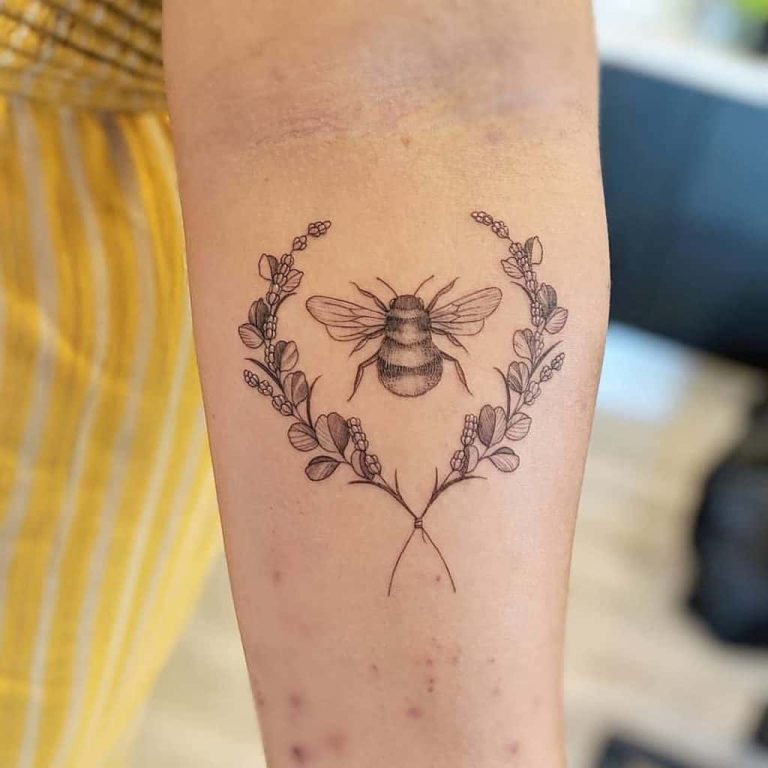There is no one answer to this question since it depends on the person’s individual meaning behind the tattoo. For some, the phrase “Do Not Go Gentle” may be a reminder to live life to the fullest and not give up easily. For others, it could be a tribute to a loved one who has passed away.
It could also simply be a powerful statement that resonates with the person. Ultimately, the decision of whether or not to get this tattoo comes down to what it would mean for the individual and if they are comfortable with making such a permanent commitment.
There are a lot of people out there who have tattoos that they regret. And while there’s nothing wrong with that, it’s important to think carefully before you get inked. After all, a tattoo is permanent!
So if you’re thinking about getting a “Do Not Go Gentle” tattoo, here are a few things to consider:
1. What does the phrase mean to you? “Do not go gentle into that good night” is a quote from Dylan Thomas’ poem “Do Not Go Gentle Into That Good Night.”
The poem is about fighting against death, and the line itself has come to represent defiance in the face of adversity. So if this is what the phrase means to you, then by all means, get the tattoo!
2. What will the tattoo look like?
This is an important consideration because again, tattoos are permanent. If you’re not sure what you want your tattoo to look like, take some time to research designs or talk to a professional Tattoo Artist about your ideas. Once you’ve settled on a design, make sure you’re happy with it before getting inked!
3. Are you prepared for the pain?
[ENG] 저스디스(JUSTHIS) – Do Not Go Gentle Into That Good Night II | [DF LIVE] JUSTHIS, 콰이, 던말릭, 공공구
Do Not Go Gentle into That Good Night Meaning
“Do not go gentle into that good night,
Old age should burn and rage at close of day;
Rage, rage against the dying of the light.
”
These famous words by Dylan Thomas are often interpreted as a call to resist death. Indeed, they can be read as an encouragement to fight against the inevitable end that awaits us all.
However, some scholars believe that the poem is actually about accepting death with grace. In this interpretation, the speaker is urging us to “go gentle” into the night – to accept death calmly and peacefully.
So which is it?
Is Dylan Thomas urging us to resist death or to accept it? The answer may lie in the final lines of the poem:
“Though wise men at their end know dark is right,
Because their words had forked no lightning they
Do not go gentle into that good night.”
Here, it seems clear that Thomas is talking about those who have fought bravely against adversity – those who have “forked no lightning.” He is saying that these people should not go gently into death because they have lived such full and vigorous lives.

Credit: www.pinterest.com
What Does Do Not Go Gentle into That Good Night Mean Tattoo?
Do not go gentle into that good night,
Old age should burn and rave at close of day;
Rage, rage against the dying of the light.
This Dylan Thomas poem is often quoted as an anthem for those facing death. The speaker urges others not to give in to death quietly, but rather to fight against it. The phrase “that good night” can be interpreted to mean either the peaceful sleep of death or the darkness that comes with it.
This tattoo could be seen as a reminder to live life to the fullest and not take anything for granted. It could also be seen as a way to honor a loved one who has passed away. Either way, it is a beautiful and moving tattoo design.
What Does Do Not Go Gently Mean?
The phrase “do not go gentle into that good night” is often used to encourage people to fight against death and to live their lives to the fullest. The phrase comes from a poem by Dylan Thomas, in which he urges his father to resist death and keep fighting. The full poem reads:
Do not go gentle into that good night,
Old age should burn and rave at close of day;
Rage, rage against the dying of the light.
Though wise men at their end know dark is right,
Because their words had forked no lightning they
Do not go gentle into that good night.
Good men, the last wave by, crying how bright
Their frail deeds might have danced in a green bay,
Rage, rage against the dying of the light.
Wild men who caught and sang the sun in flight,
And learn, too late, they grieved it on its way,
Do not go gentle into that good night.
What Tattoo Means Overcoming Struggles?
There are a lot of different ways that people can express themselves. For some people, this means getting a tattoo. Tattoos can be a way to show that you’re proud of who you are and what you’ve been through in life.
They can also be a reminder to stay strong when things get tough. If you’re looking for a tattoo that represents overcoming struggles, here are some ideas to consider.
One popular design is the phoenix.
This mythical creature is known for rising from the ashes and symbolizes rebirth and new beginnings. Getting this tattoo could show that you’re ready to move on from your past and start fresh.
Another option is an anchor tattoo.
This has been traditionally associated with sailors and maritime culture, but it can also represent stability during times of trouble. If you feel like you’re constantly being pulled down by your struggles, an anchor tattoo could remind you to stay grounded and focused on what’s important.
There are endless possibilities when it comes to designing a tattoo that represents overcoming struggles.
The most important thing is to choose something that has meaning for you personally.
What is a Jammer Tattoo?
A jammer tattoo is a type of tattoo that is used to cover up another tattoo. It is usually done in black ink and can be any size or shape.
Conclusion
In his blog post, “Do Not Go Gentle Tattoo?,” Michael asks whether it is ever appropriate to get a tattoo of a poem. He begins by recounting how he got a tattoo of Dylan Thomas’s “Do Not Go Gentle into that Good Night” after his father died. He was young and impulsive, and he now regrets it.
The tattoo is not only poorly done but also misspelled.
Michael goes on to say that there are some poems that are so beautiful and moving that they deserve to be immortalized in ink, but many others are simply too personal or too mundane to be made permanent in this way. He concludes by saying that if you’re considering getting a poem tattooed on your body, make sure it’s one that you won’t regret later.




